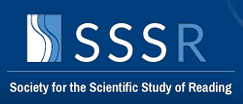Where language meets math: the impact of reading skill on solving math story problems
Matt Cooper Borkenhagen and Mark Seidenberg
Matt Cooper Borkenhagen presented his research with Mark Seidenberg on the impact of reading skill on solving math story problems at the Twenty-Fourth Annual Meeting of the Society for the Scientific Study of Reading (SSSR), held July 12-15, 2017 in Halifax, Nova Scotia.
Summary: Story problems are used to teach and assess math skills. But to what extent is math problem solving affected by individuals’ reading abilities? This study examined the impact of reading and math ability on accuracy in solving problems of varying mathematical and linguistic complexity. Participants were given 16 story problems to solve, with problem solving accuracy as the main dependent measure. Measures of reading and math abilities and independent ratings of problem difficulty were obtained. Reading skill was predictive of problem solving success. For individuals of lesser math skill, the effect of reading skill was greater than those with higher math skill. Additionally, the difficulty of the problem differentially affected participants with lower reading skill than their more skilled counterparts. The results are relevant to how story problems are used in instruction and assessment, suggesting that reading skill should be considered as a relevant factor in solving math story problems.
Keywords: Reading, Individual Differences, Mathematical word problems, Comprehension, Text Characteristics
